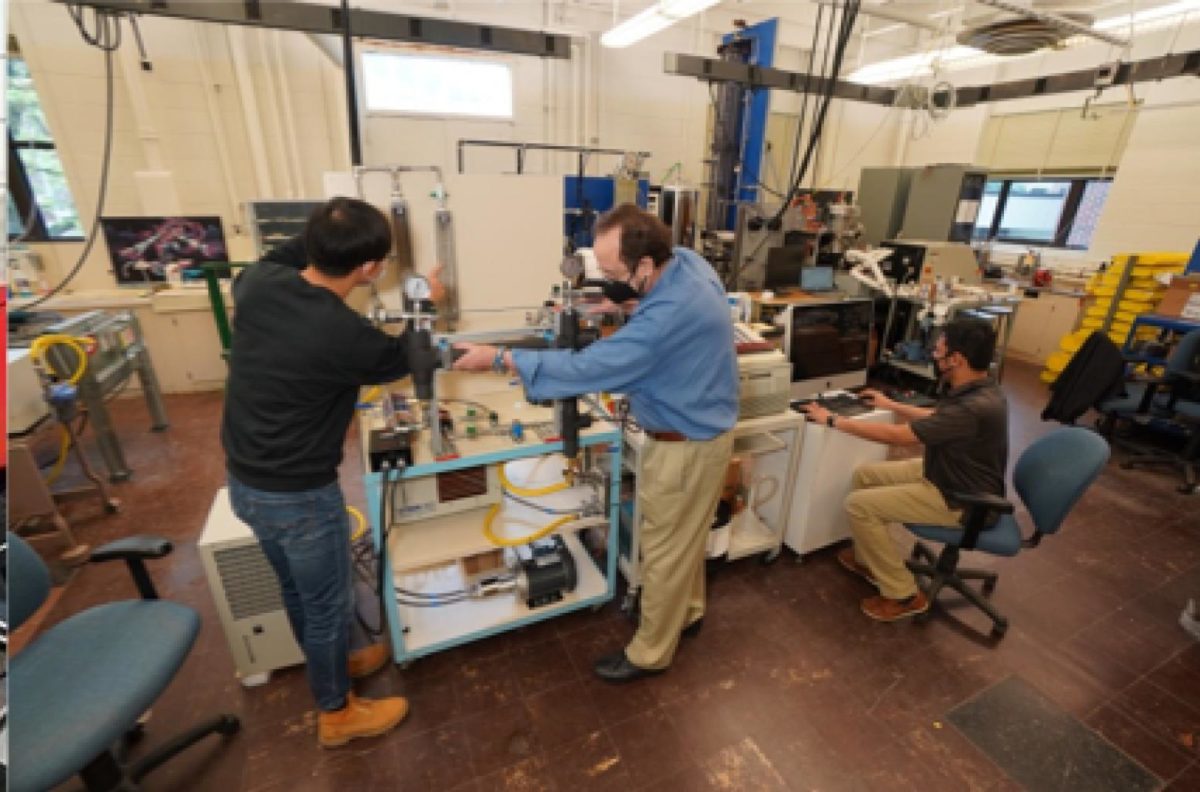Purdue University researchers have developed a cooling technique for NASA that could be used to shorten EV charging times to just five minutes. They enabled two-phase fluid flow and heat transfer experiments to be conducted in the long-duration microgravity environment on the International Space Station. The new subcooled flow boiling technique results in better heat transfer effectiveness and could be used to control the temperatures of future systems in space. It can cool cables that carry high charges, potentially allowing for the faster flow of electricity on Earth. Specifically, it can be used to reduce the charging time for EVs to just five minutes, according to the researchers.
Pennsylvania University researchers have reported a battery tech breakthrough that enables 10-minute charging times for typical EV lithium-ion batteries. “Our fast-charging technology works for most energy-dense batteries (more than 250 Wh kg−1 or higher than 4 mAh cm−2) and will open a new possibility to downsize electric vehicle batteries from 150 to 50 kWh without causing drivers to feel range anxiety,” said Chao-Yang Wang, a professor of mechanical engineering at Penn State. Wang was the lead author of the study, which was recently published in Nature.
Huazhong Agricultural University researchers have reported a new lithium metal battery breakthrough. Their findings address two key challenges that are holding the technology back – lithium deposition and energy loss during charge cycles. In a recent paper in Nano Research, the researchers describe how they created a 3D scaffold and infused molten lithium onto it. The key to ensuring the safety of this technique is using a layer of nanosheets made out of a magnesium-aluminum double oxide. For the next step, we will replace the heavy matrix with a light-weight matrix to yield a high weight ratio of active lithium to improve the battery energy density,” said researcher Feifei Cao. “We expect to prepare a high safety composite lithium anode that is competitive for high gravimetric energy-density cell with more than 500 Wh kg-1.”
StoreDot has demonstrated silicon-dominant extreme fast charging battery cells that can charge over 1,000 consecutive cycles. The Israeli battery developer said the cells are being shipped to StoreDot's global automotive OEM partners for testing. They include Volvo, Polestar, Daimler, and VinFast.
Renault has announced plans to build a network of 200 EV fast-charging stations across Europe. The French car maker’s e-mobility unit, Mobilize, said it wants to install stations at intervals of 150 kilometers on major highways. The first stations will open in southern France in the coming months, followed by additional installations in Belgium, Spain, Italy and France that will by delivered by mid-2024.
Shell has formed a nine-member consortium to offer electrification solutions for mining sites. The consortium includes Skeleton, Microvast, Stäubli, Carnegie Robotics, Heliox, Spirae, Alliance Automation, and Worley. They will work to create battery-based solutions for off-road vehicles that can be charged in approximately 90 seconds via charging stations installed on site, and in most cases combined with renewable energy microgrids for power supply. The battery technology will be provided by Germany-based Skeleton Technologies.
Solarever has presented its first electric car built for mass production in Mexico. The solar module manufacturer launched the E-WAM in two versions: the Lite and the Bold. E-WAM promises a journey of up to 335 kilometers on a single charge. Both versions are based on LFP batteries.
Maxeon Solar Technologies has expanded its SunPower One home energy solution to include EV charging. The Singapore-based PV manufacturer has partnered with Chinese EV charging company Star Charge to enable the use of self-generated solar power for EV charging. The EV charging products will be integrated into the SunPower One home energy solution in select European markets in the first quarter of 2023. Maxeon plans to continue to add features to its SunPower One system through future partnerships.
This content is protected by copyright and may not be reused. If you want to cooperate with us and would like to reuse some of our content, please contact: editors@pv-magazine.com.




By submitting this form you agree to pv magazine using your data for the purposes of publishing your comment.
Your personal data will only be disclosed or otherwise transmitted to third parties for the purposes of spam filtering or if this is necessary for technical maintenance of the website. Any other transfer to third parties will not take place unless this is justified on the basis of applicable data protection regulations or if pv magazine is legally obliged to do so.
You may revoke this consent at any time with effect for the future, in which case your personal data will be deleted immediately. Otherwise, your data will be deleted if pv magazine has processed your request or the purpose of data storage is fulfilled.
Further information on data privacy can be found in our Data Protection Policy.